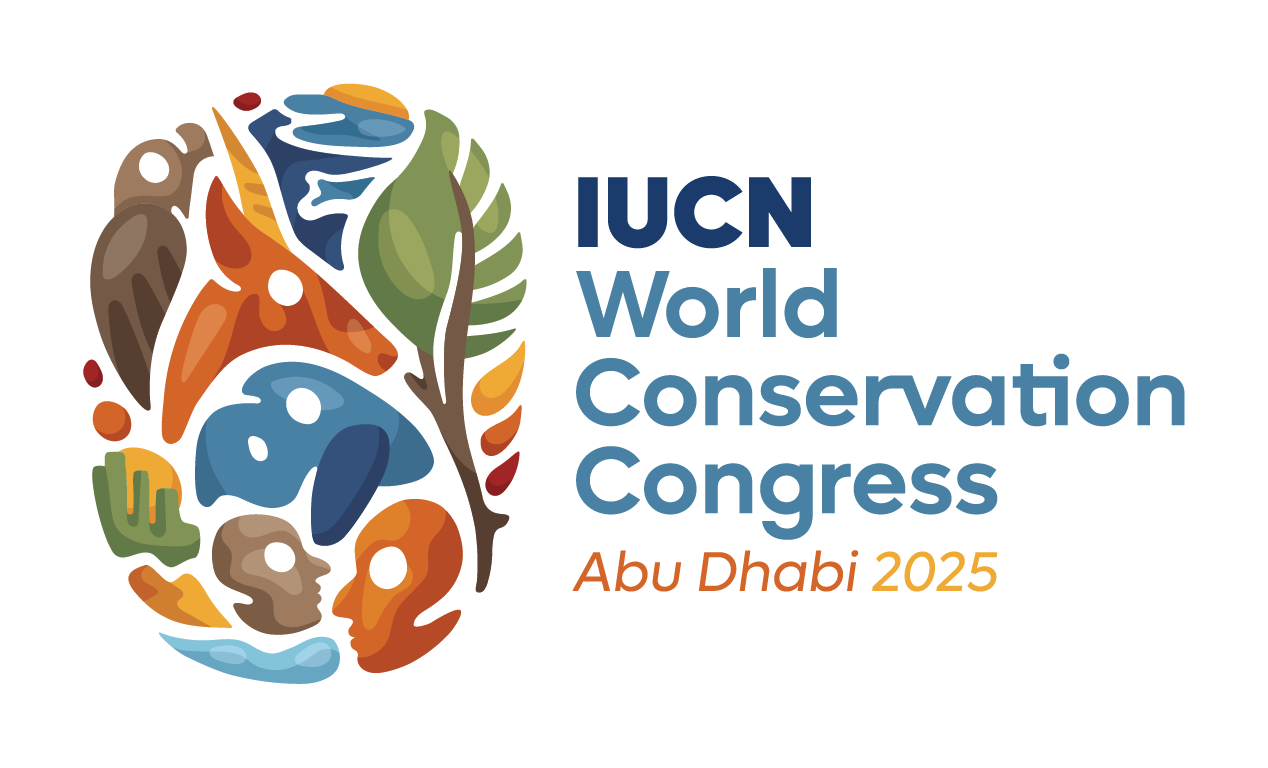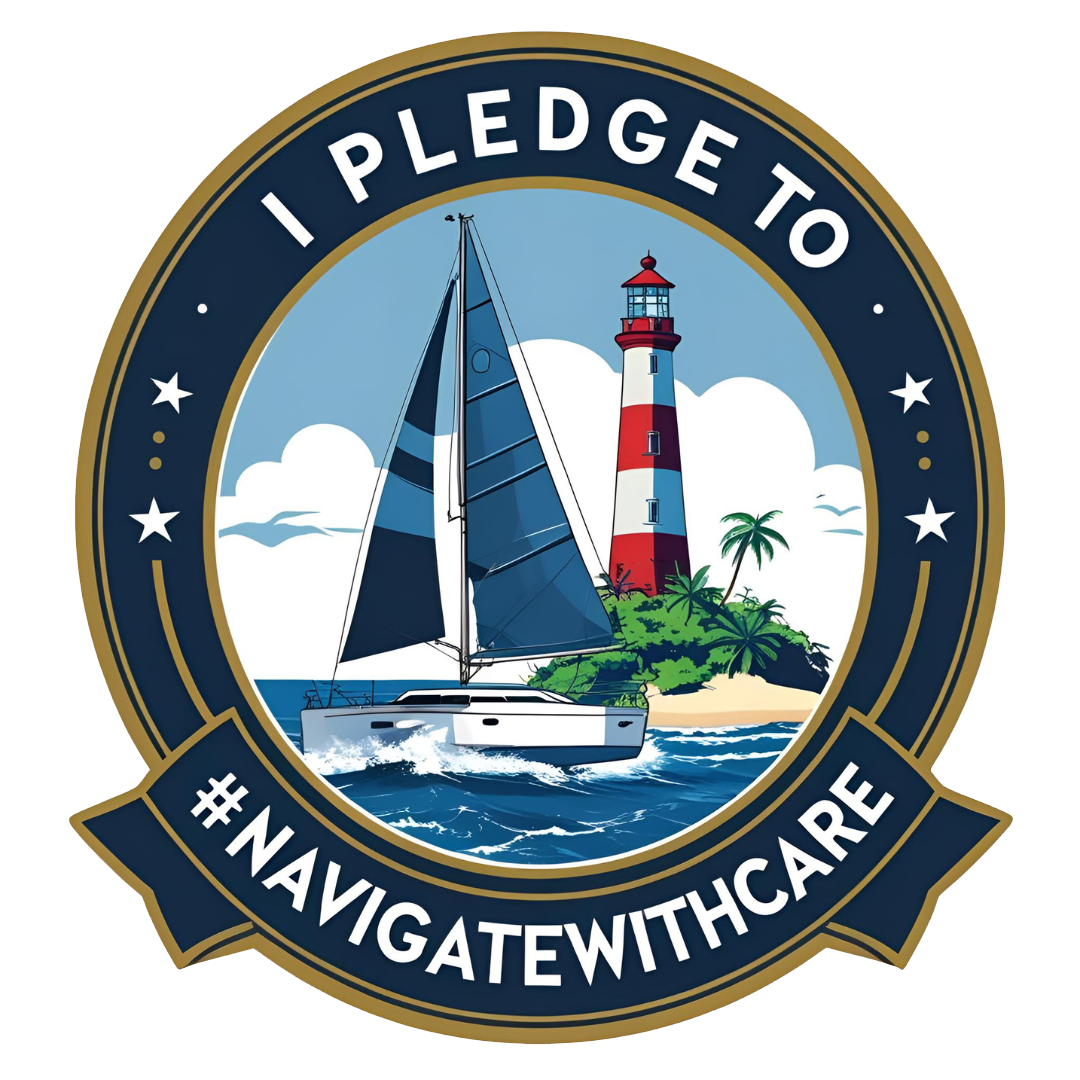As the year draws to a close we thought we’d look back at what we’ve been doing over the last twelve months. As part of our multi-year Global Reef Expedition we spent 2013 conducting field research in the Pacific Ocean. Our extended team of scientists surveyed reefs in French Polynesia, The Cook Islands, Tonga, Fiji, and ended the year in New Caledonia.
In each of these countries we use a standard scientific methodology to collect data. This will eventually allow us to compare results from across the globe and provide us with a comprehensive look at how coral reef communities are faring around the world. However, we also examined unique aspects of each place and that has led to some exciting discoveries.
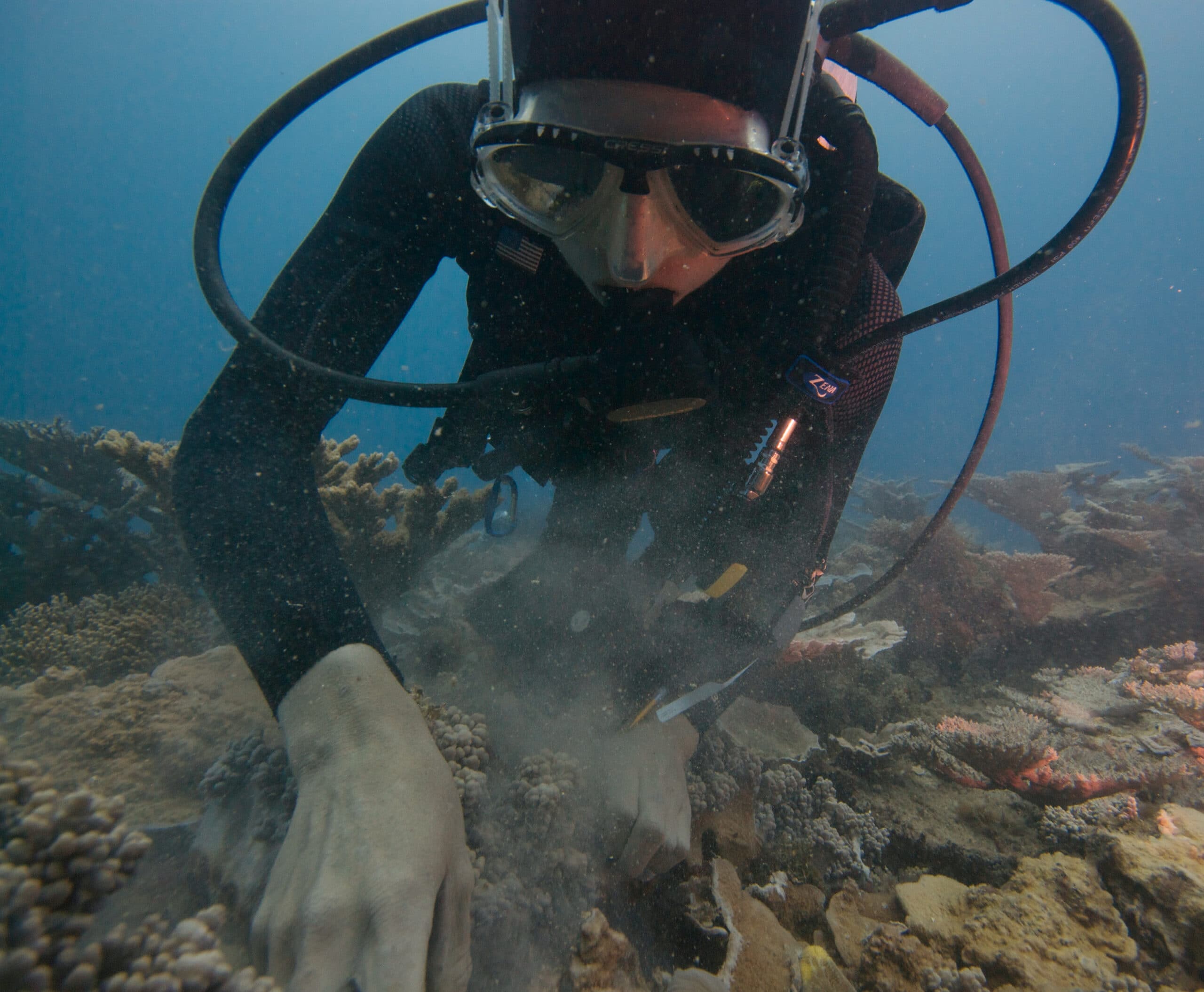 Mangareva, French Polynesia has the highest prevalence of ciguatera fish poisoning in the world. So while studying the reefs here we collected a large enough sample of the dinoflagellates that cause this poisoning to allow us to determine their species. And, in the Gambier Archipelago we got a nice surprise, we identified unique reef structures with some of the healthiest remaining coral communities in French Polynesia.
Mangareva, French Polynesia has the highest prevalence of ciguatera fish poisoning in the world. So while studying the reefs here we collected a large enough sample of the dinoflagellates that cause this poisoning to allow us to determine their species. And, in the Gambier Archipelago we got a nice surprise, we identified unique reef structures with some of the healthiest remaining coral communities in French Polynesia.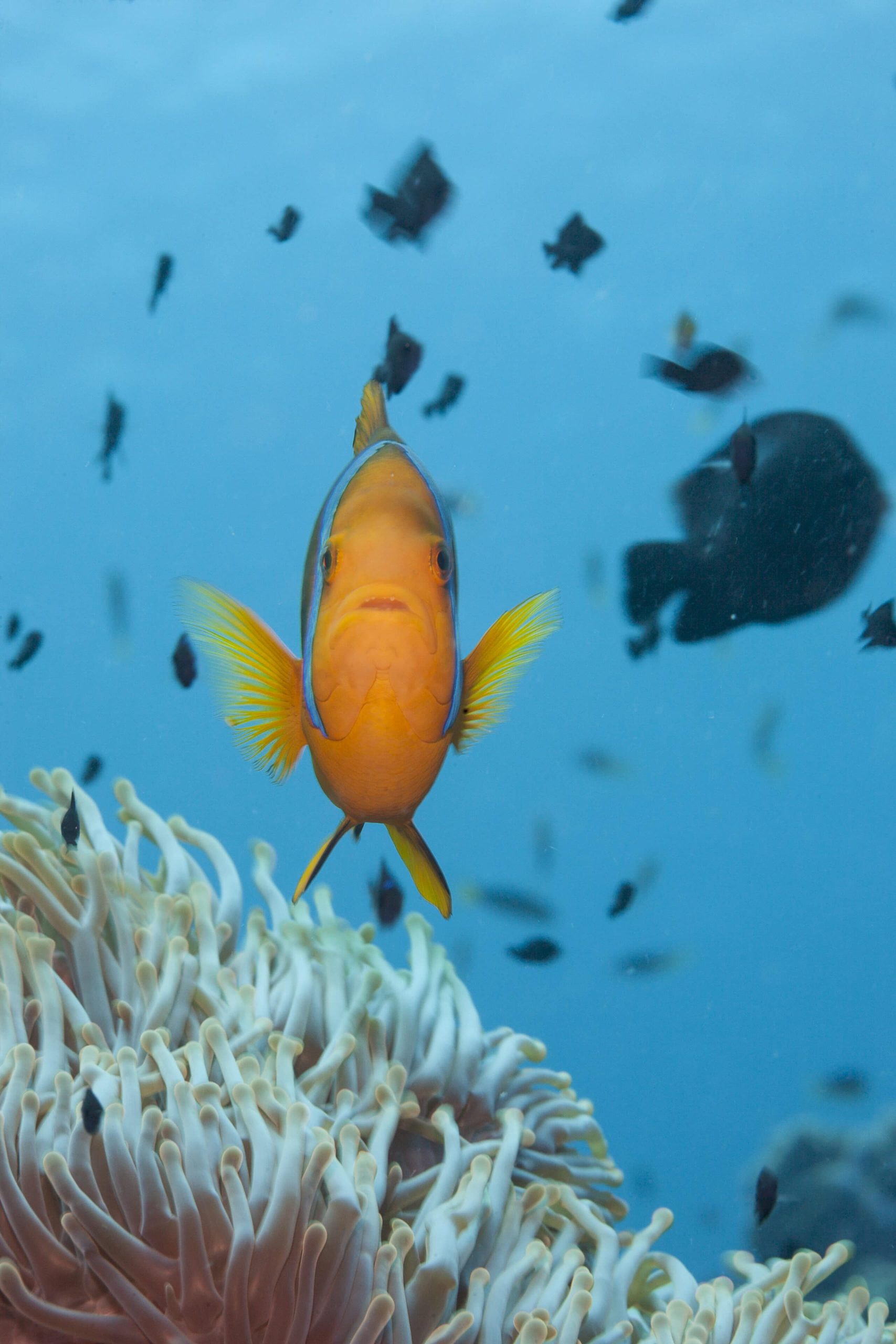
In the Cook Islands our team of scientists completed the first detailed assessment of coral and fish populations around the remote island of Palmerston. We found that these reef communities were flourishing. But, round the island of Aitutaki we found a severe outbreak of Crown of Thorns Seastars and began intensive efforts to remove these coral killing starfish. We also provided a detailed report of the threat to the Prime Minister.
In Fiji we had a focus on education and outreach. During the month that our science team spent researching underwater our education team went on land to ten different islands in the Lau Province. Here they met with teachers, students, and villagers to talk about coral conservation and threats to ocean health. You can watch their efforts in a short video. Fiji Education Video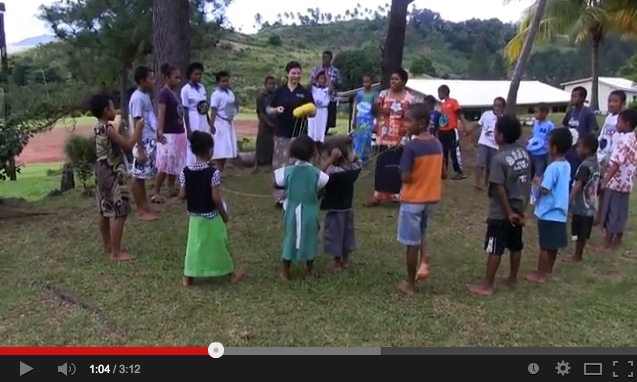
In the lagoons of Tonga we were happy to find very unusual, diverse coral communities with old growth colonies and large single species stands of plating and branching corals. In one location we even found unusually large, massive boulder corals that were completely live and around 500 to 1000 years old.
At the Southern end of New Caledonia we worked in Prony Bay. 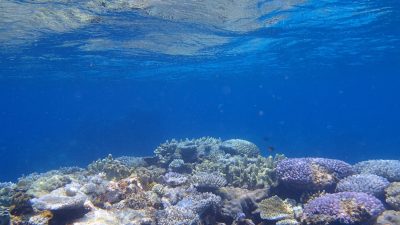 There’s quite a lot of silt and coastal runoff from mining in this bay so we weren’t sure what to expect. However we found flourishing coral communities, with unique species of coral, and several species that we’d not seen yet during our Global Reef Expedition. Finding these corals able to cope with the harsh conditions of this bay was uplifting for the whole science team.
There’s quite a lot of silt and coastal runoff from mining in this bay so we weren’t sure what to expect. However we found flourishing coral communities, with unique species of coral, and several species that we’d not seen yet during our Global Reef Expedition. Finding these corals able to cope with the harsh conditions of this bay was uplifting for the whole science team.
Looking forward to 2014 one thing is clear; we have a lot of data to analyze to make sense of unusual findings as well as our standard surveys. We also have field research to conduct starting with the Solomon Islands next spring.

